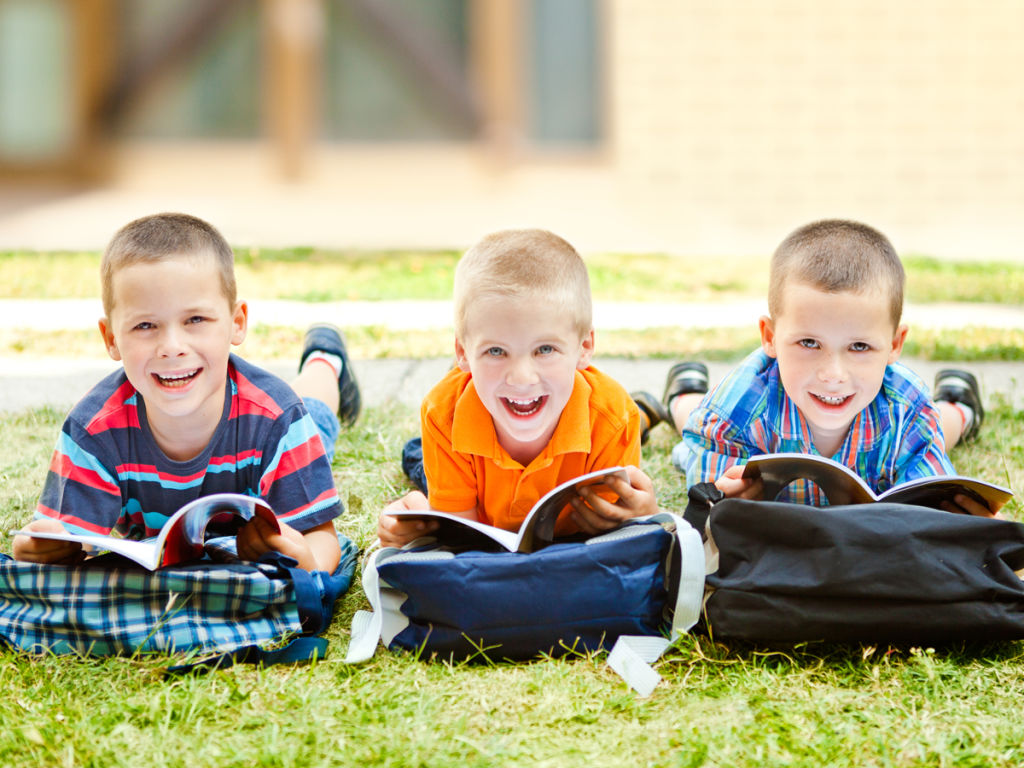Child starting school this year? Tips for a successful start

The first day of school is a huge milestone in the life of any child. While it’s an exciting rite of passage for those starting school (now known as foundation students), it can also be a stressful time – especially as parents and children often don’t know what to expect.
Jenni Connor, researcher and writer with Early Childhood Australia, has co-written a book for parents about their children making the move to primary school. She says there are key things parents can help their children learn to ensure a smoother transition.

Jenni’s tips for a successful school start:
- Involve your child in preparing for school, e.g. shopping for their uniform, school bag and lunch box.
Make sure they can manage their lunchbox and school bag. - Plan for healthy lunches, snacks and water to drink.
- Help your child learn to dress themselves, and to use the toilet on their own.
- Establish the bedtime and morning routine they will have when they start school. It is very important that they get enough sleep.
Jenni, who has worked as a teacher and a primary school principal, says building a child’s life skills – such as their self-regulation and language skills – is key to a good school start.
“Self-regulation includes a range of personal and social skills – being able to control their behaviour, so things like raising their hand to ask to go to the toilet rather than just leaving the room,” she says.
“It also includes being able to organise themselves and persist with tasks, being able to pay attention for an extended time and being able to enter and exit play and friendship groups.
“Language is important because it underpins social experiences and learning. The richer the child’s vocabulary, the easier it is to communicate and to understand the learning program.”
Jenni says parents can help build their children’s vocabulary by reading to them, or reading along with them before the start of school.
Parents can also help with their children’s transition by building strong relationships with their primary school teachers and understanding the different worries they may have.
“All the literature says that relationships between the adults is key – and being aware that everyone has different concerns about starting school,” Jenni says.
“A couple of years ago, the University of Melbourne did a piece of research on what worries children, parents and teachers about starting school. Children worry about the rules – will they be breaking them, or will they have friends or will there already be friendship groups, and they will be on their own?
“Parents worry about that social adjustment but also worry about whether the teacher will like their child and realise how special they are. And teachers are mostly concerned about the capacity for children to fit into a large group, their behaviour and whether they can be independent when they need to be. All have different perspectives.”
Building confidence and familiarity with school can help reduce the stress of starting out in a new environment. Many children are already used to spending time in an early learning centre or preschool, but Jenni says simple things such as taking your child to visit their new school and familiarising them with the playground and classrooms where possible, can help build a child’s confidence. Many preschools and early learning centres organise school visits as part of their transition programs.
While starting school is a big change for children, it’s also a transition for parents – requiring adjustments in their life at home and at work.
Jenni says while parents may be used to their children attending childcare or an early learning cente, school can still be an emotional transition for them. “It can be part of an early empty nest feeling, particularly for those sending their children to school for the first time.”
More tips are available in Early Childhood Australia’s book Your Child’s First Year At School .
We recommend
States
Capital Cities
Capital Cities - Rentals
Popular Areas
Allhomes
More







